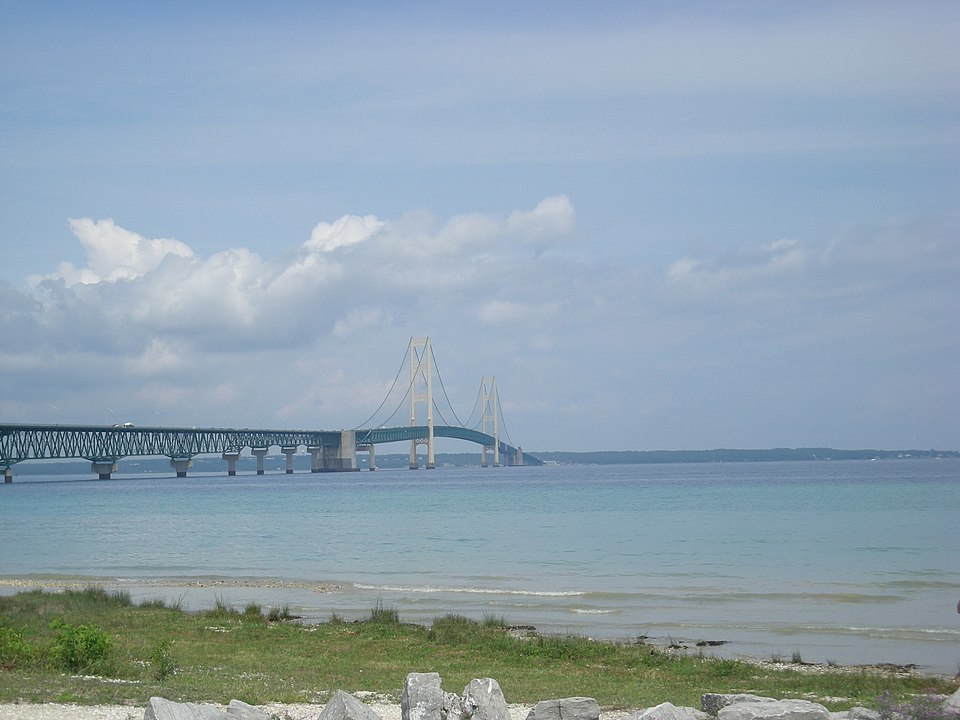
- Details
- By Neely Bardwell
The Michigan Public Service Commission has requested data and information on the safety risks of Canadian energy giant Enbridge’s Line 5, noting their application to build a proposed replacement for the segment that runs under the Straits of Mackinac lacks in engineering and safety information, including on the risks of explosion. Enbridge has proposed encasing Line 5 in a tunnel beneath the Straits.
In 2021, Governor Gretchen Whitmer terminated the easement that permits the dual pipeline to cross the Straits of Mackinac. Enbridge continues to use the pipeline, effectively trespassing, as they violate the termination notice.
Should Line 5 break or leak, it will threaten the drinking water of more than 40 million people.
Tribal nations have stressed for years the safety risks associated with the pipeline. The Bay Mills Indian Community has made it clear that this pipeline endangers their community.
“Any decision that may jeopardize the very livelihoods of Tribal Nations deserves serious and careful consideration,” said Bay Mills Indian Community President Whitney Gravelle. “We are grateful the Commission is examining the serious safety risks posed by Line 5 and its proposed tunnel replacement. The Straits are the center of creation for our people, and the construction of a tunnel through this sacred area endangers our livelihoods, our fisheries, and our culture. Every day that the Line 5 dual pipelines continue to pump oil and gas through the Great Lakes amounts to a violation of our treaty-protected rights and an acceleration of climate change. We must stop the tunnel project and shut down Line 5.”
The Native American Rights Fund (NARF), a nonprofit organization focused on defending Tribes’ rights in the courtroom, has been representing the Bay Mills Indian Community along with non-profit public interest law firm Earthjustice.
“It is reassuring to know that the Commission is doing its due diligence in order to accurately consider the impacts, risks, and damages the existing Line 5 oil pipeline and a tunnel would cause for the public, in particular tribal citizens,” said NARF Staff Attorney David L. Gover in a statement “I am hopeful that the Commission will join tribal and state governments in guarding public safety, the local economy, and the Great Lakes ecosystem from a risky and unnecessary project."
More Stories Like This
Gwich'in Tribal Governments Submit Comments Challenging Fish and Wildlife Service's Inadequate Environmental Review of Arctic Refuge Snow RoadRappahannock Tribe Challenges 9M-Gallon Water Plan
Feds release draft long-term plans for Colorado River management
Apache Leader Walks 60 Miles to Court Hearing That Will Decide Fate of Sacred Oak Flat
Rappahannock Tribe Raises Sovereignty and Environmental Concerns Over Caroline County Water Permit
Help us defend tribal sovereignty.
At Native News Online, our mission is rooted in telling the stories that strengthen sovereignty and uplift Indigenous voices — not just at year’s end, but every single day.
Because of your generosity last year, we were able to keep our reporters on the ground in tribal communities, at national gatherings and in the halls of Congress — covering the issues that matter most to Indian Country: sovereignty, culture, education, health and economic opportunity.
That support sustained us through a tough year in 2025. Now, as we look to the year ahead, we need your help right now to ensure warrior journalism remains strong — reporting that defends tribal sovereignty, amplifies Native truth, and holds power accountable.
 The stakes couldn't be higher. Your support keeps Native voices heard, Native stories told and Native sovereignty defended.
The stakes couldn't be higher. Your support keeps Native voices heard, Native stories told and Native sovereignty defended.
Stand with Warrior Journalism today.
Levi Rickert (Potawatomi), Editor & Publisher


